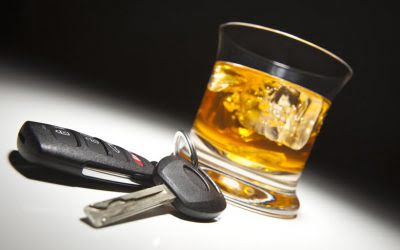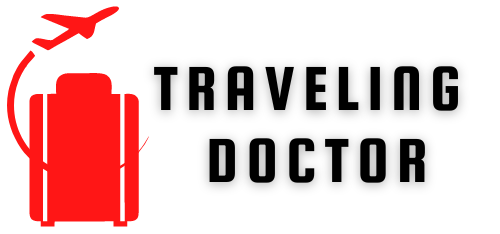Alcohol Cravings: Why They Happen and How to Manage Them
Overcoming addiction is a courageous journey fraught with diverse challenges, one of the most persistent being cravings. Cravings during recovery are intense and often difficult to resist urges to use substances. Successfully managing these cravings is crucial for maintaining sobriety and avoiding relapse. This article delves into understanding cravings and offers effective strategies to cope with them during the recovery process. CBT equips you with coping strategies and tools to manage cravings effectively.
The Importance of Accepting Triggers
Doing this regularly can help you become more aware of your inner experiences. You can use this to deal with cravings and triggers for alcohol better. Make it a habit by fitting mindfulness meditation into your daily routine. going back to drinking after being sober Combine it with other healthy habits like exercise or healthy eating.
- Below are some key strategies to help you stop craving wine, beer, and any other form of alcohol.
- Alcohol cravings can sneak up on you when you least expect them, especially when you’re in the early stages of sobriety.
- But in spite of your goals and no matter how committed you are to changing your habits around drinking, avoiding alcohol might prove a little more difficult than you expected.
- Find out how online treatment may be able to help you quit or cut back, 100 percent from home.
- In this guide, we’ll explore the science behind alcohol cravings, how long they typically last, what influences their intensity, and—most importantly—how to manage them effectively.
Avoiding drinking triggers
Considering the link between diet and alcohol cravings, a list of seven foods reputed for their ability to help curb alcohol cravings is provided. Note that while these foods alone might not solve the problem, they can certainly help when part of a balanced diet and recovery plan. Contact your primary care provider, health insurance plan, local health department, or employee assistance program for information about specialty treatment. Your provider may also be able to suggest an online self-guided program. Such e-health tools have been shown to help people overcome alcohol problems.
“Isn’t taking medications just trading one addiction for another?”

Which option is best for you depends on how much you’ve been drinking, how long you’ve had a problem, the stability of your living situation, and other health issues you may have. Loving-Kindness Meditation is an effective mindfulness practice. It can reduce stress, boost mood and increase self-compassion. In order to feel the benefits of LKM, it’s important to practice it often. Recite phrases like “may I be happy, may I be healthy, https://buktijpdewalive.com/how-to-get-sober-without-aa-and-whats-really/ may I be free from suffering” or any phrase that resonates with you. With regular practice of LKM, your cravings for alcohol may decrease and your overall wellbeing may improve.

This approach is based on the understanding that our thoughts, feelings, and behaviors are all interconnected. In terms of cravings, it could involve identifying triggers, developing distraction techniques, and practicing mindfulness. To manage cravings in addiction recovery, recognizing that cravings are common is essential. These cravings often arise from changes in brain chemistry, creating psychological urges that need effective coping strategies. One helpful approach is practicing the mindset of “surfing the urge,” where individuals accept cravings as temporary experiences that usually last between 5 to 30 minutes. It is entirely normal for individuals in recovery to experience cravings.

Professional Associations of Medical and Nonmedical Addiction Specialists
- We recently launched our in-app chatbot, Melody, powered by the world’s most powerful AI technology.
- Writing down your experiences can help you gain insights into your triggers and emotions, making it easier to address them.
- The consistent confrontation of the urges eventually results in their demise.
- The emotional strength derived from connecting with others in recovery can make a significant difference in managing cravings effectively.
- Others may want one-on-one therapy for a longer time to deal with issues like anxiety or depression.
By trying these and discovering what works best for you, you can create a plan to manage triggers and cope with alcohol Oxford House cravings. Don’t hesitate to get professional help too – you are not alone. Alcohol cravings can come from many sources, both negative and positive.
Alcohol cravings can feel overwhelming—but they are not stronger than you. With time, support, and the right strategies, they become manageable, predictable, and even empowering. If cravings interfere with daily life or sobriety goals, professional support is not just helpful—it’s essential. The NIAAA offers a printable urge tracker and a worksheet for handling triggers. Ria Health members also get a workbook with a number of exercises to mindfully manage drinking urges. Your reward system is one of the main culprits in this process.
Don’t Accept Unacceptable Behavior
Their understanding and support can catalyze behavioral changes while diluting the intensity of cravings. Genetic factors can influence the intensity of cravings, with some individuals being more predisposed to strong urges due to their genetic makeup. At CheckUp & Choices, we have a program specifically designed to help you track and confront your alcohol cravings. In our app we ask people to keep track of the date, time, intensity (1–10), and duration of their alcohol cravings. Taking note of everything allows you to realize that urges increase and decrease in intensity over time. And keeping track over time gives you the chance to see if your efforts to reduce your urges and cravings are working.
